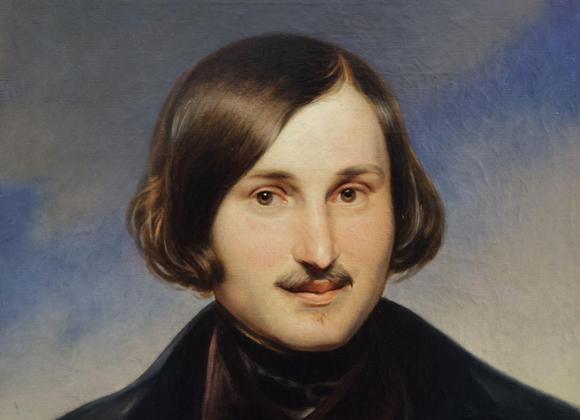By Harry Mottram: Axbridge Community Theatre are staging the classic comedy satire The Government Inspector by the 19th century Ukrainian writer Nikolai Gogol in November. These are a few notes about the man who wrote the drama.
Originally written in 1842 the satire on Russian society The Government Inspector has become one of the classics of the theatre as its themes are universal and as pertinent today as when it was penned in Imperial Russia.
The legend is that the writer Gogal was looking for an idea for a comedy play when his friend Pushkin told him about a time when he was mistaken for a government official – and the idea was born. Initially the drama looked set to be banned since it sent up the State’s officials – but the Tsar Nicholas I approved of the drama and it has never looked back.
Nikolai Gogal was born in 1809 in the Ukrainian town of Sorochyntsi during the Napoleonic Wars during which the French army invaded and occupied Moscow. He earned his reputation as a novelist, short story writer, and playwright.
As a child, Gogol helped stage plays in his uncle’s home theatre and was influenced by his father who wrote amateur plays for the stage.
In 1820, Nikolai Gogol went to a school of higher art in Nezhin where he began writing. He moved to Saint Petersburg after leaving school in search of fame as a writer but his poetry was turned down by publishers but in 1831 a volume of his Ukrainian stories (Evenings on a Farm Near Dikanka) was published, and was met with success.
His style had a sophisticated sense of satire and humour setting him aside from some of his contemporaries and influencing writers in the future such as Dostoevsky, Franz Kafka and Vladimir Nabokov. Criticised for not advocating revolution by later writers his legacy led to successive Russian regimes struggling to either praise or condemn him.
Other works include Taras Bulba and The Portrait, the play The Marriage and the short story, The Overcoat.
From 1836 he lived abroad in Germany and Italy meeting up with Polish exiles and studying the arts in Rome. He returned to Russia in 1848 and died four years later.
Axbridge Town Hall. Wednesday 22nd November to Saturday 25th November 2023 7.30 PM
Admission £12 – Licensed Bar TICKETS ON SALE SOON

